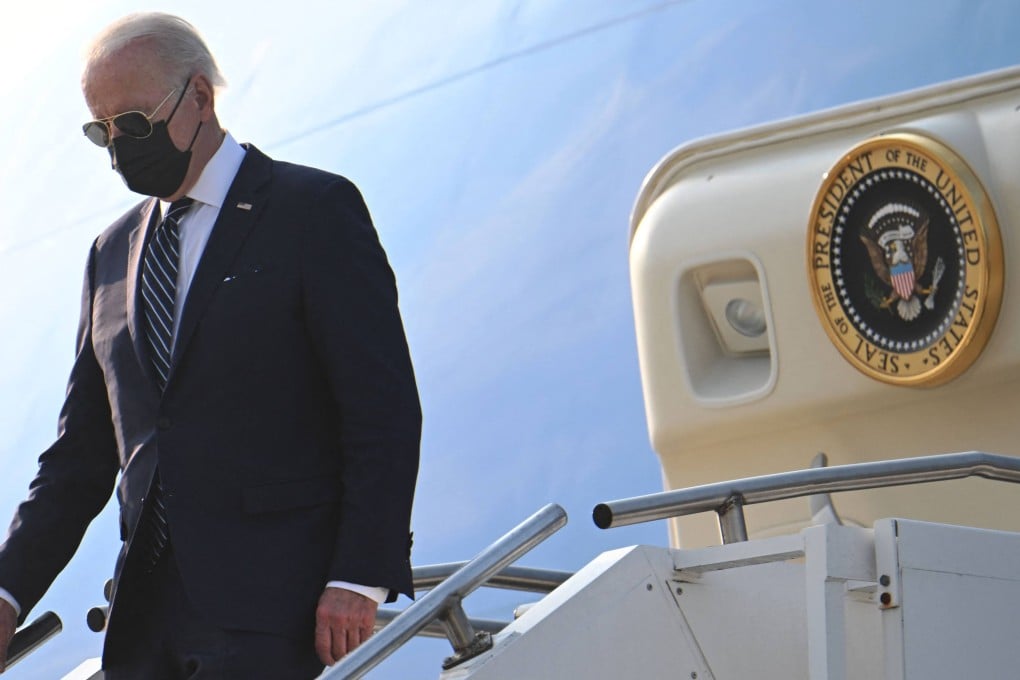Advertisement
Joe Biden arrives in South Korea for Asia tour aimed at warning allies about China, Russia
- One highlight of the trip will be the launch of the Indo-Pacific Economic Framework which is being proposed as a key vehicle for US engagement in the region
- Biden’s first stop on his tour was at a Samsung semiconductor plant, where the US president touted South Korea’s role in securing global supply chains
Reading Time:4 minutes
Why you can trust SCMP
80

United States President Joe Biden on Friday emphasised the need for closer supply chain cooperation among Washington’s allies as he arrived in South Korea for an Asia visit seen as an effort to warn the region about China and Russia.
After landing just past 4pm local time, Biden’s first stop in his inaugural trip to Asia as US president was to a Samsung Electronics semiconductor plant.
The Democrat president said it was vital for Seoul and the US to keep their supply networks “resilient, reliable and secure” noting how the Covid-19 pandemic exposed the fragility of just-in-time supply chains.
Advertisement
Biden also referenced Russia’s invasion of Ukraine, saying President Vladimir Putin’s “brutal and unprovoked war in Ukraine has further spotlighted the need to secure our critical supply chain so our economic and national security are not dependent on countries that don’t share our values”.
“A critical component of how we will do that in my view is by working with close partners who do share our values, like the Republic of Korea,” he said, speaking alongside the new South Korean President Yoon Suk-yeol.
Advertisement
Advertisement
Select Voice
Select Speed
1.00x